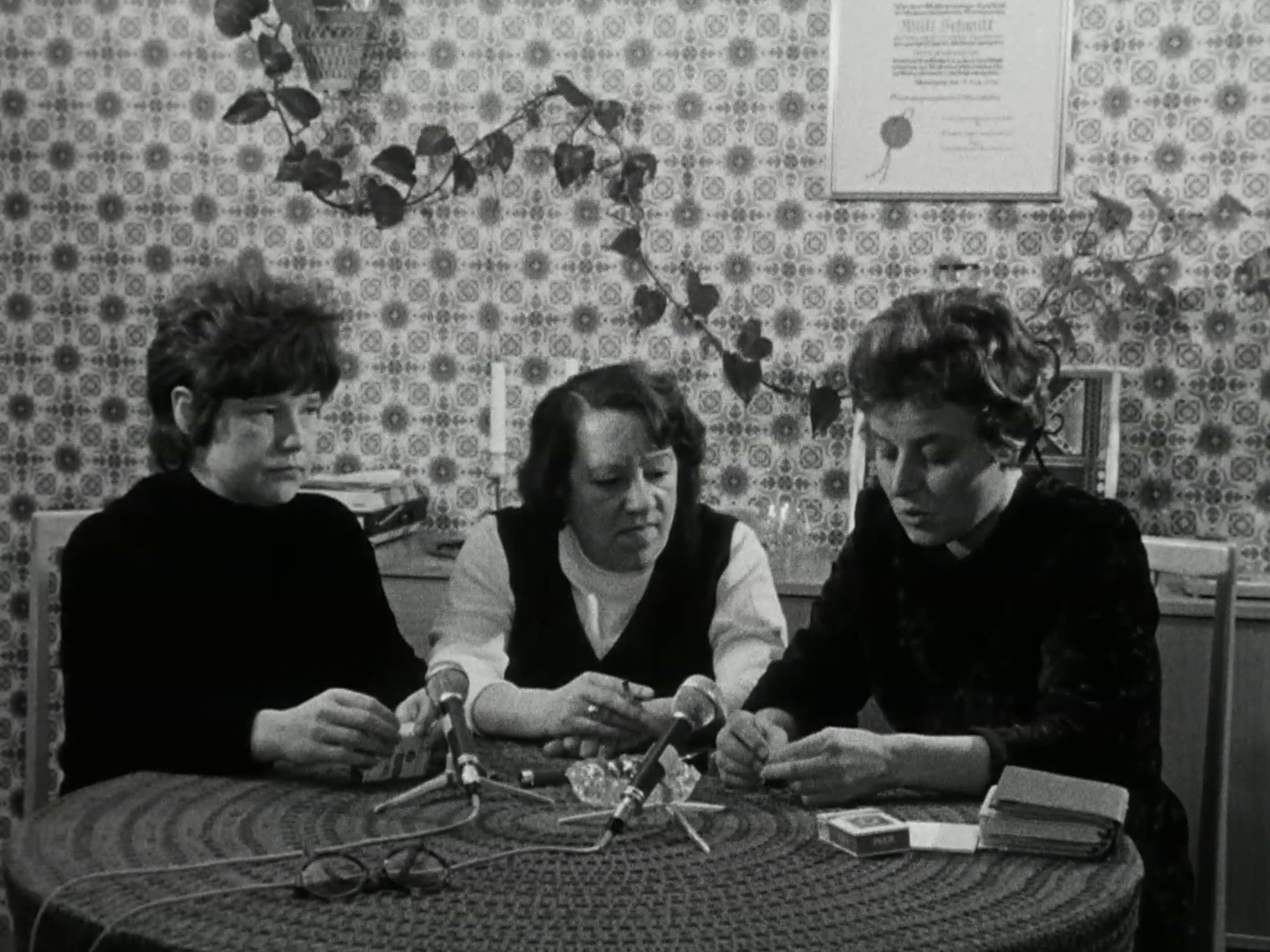
The exploitation of female factory workers in West Germany is interrogated in this Marxist documentary, which takes its title from a sentence in Theses on Feuerbach.
EN
‘‘My documentary Es kommt drauf an, sie zu verändern […] has set standards in the context of the reorientation and reevaluation of the image of women and the role of women in the late capitalist patriarchal society. With the slogan ‘the private is political’ or ‘the personal is political', we created new fields of debate and also created various experimental form of direct actions or interventions in public space.
We shot in several factories in the federal republic: my cameraman the filmmaker Dietrich Schubert, my assistant Mishka Pop, […] and myself. I’m also the sole producer of this low budget film financed with an award I received with an earlier film, yet without any television participation or of course television never bought this film because the aesthetics of this film were not corresponding with what television thought the public could bear. The shooting was extremely complicated and stressful, as we had constantly to hide our real intentions of shooting the film. Usually, at that time it was totally impossible if not even forbidden in West German factories. The management of the factory was usually not much interested in publicizing the poorly paid female jobs and disclosing the deficient working conditions of women. […] I pretended with a false letterhead that I was belonging a sociological institute which did exactly the opposite, which wanted to show the good conditions of women in factory and the wonderful management. So I lied, and lied, and lied. […] In some factories I got no permission at all.
As could not reveal my real intentions to the working women whom we were filming in the factory as we were constantly monitored by an observer, a representative of the plant who accompanied us while filming with our 16mm camera and recording at that time very impractical and disrupting : the sound recording wired to the camera which now for young film students it’s almost unknown. I was obliged to speak with other workers from outside the factory whom I got to know through intense research within the circuit of Unions and leftist factory groups. […]
My concern was not only to criticize the considerably lower pay of the female workers, but to analyze and visualize the much more advanced specific forms of women’s work and those in industrial women’s jobs where men did not work any more at all.’’
Claudia von Alemann1
Front Image: Courtesy of Deutsche Kinemathek
- 1Extract from a lecture given by Claudia von Alemann in the Haus der Kunst, Specters of Communism - Panel “Subjects of Revolutionary Film - Staging a Recess”.

